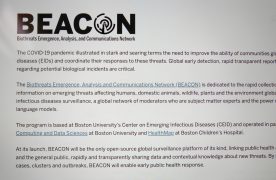Targeting the high price of textbooks, state lawmakers debated a bill that would place limits on textbook prices and decrease the practice of bundling yesterday at the State House.
If passed, the bill would reduce the frequent release of new editions as well as significantly curb bundling — packing books with extra items, like workbooks or CD-ROMs, that drive up prices.
“If you don’t need the additional materials, you’re not saving money,” said Rep. Steven Walsh (D-Lynn), the bill’s sponsor, at the hearing. “You wouldn’t buy a couch that you don’t want just because it’s on sale.”
The typically useless bundled materials inflate prices and put a strain on college students’ wallets, said Steven Rudnick, director of the Environmental Studies Program at the University of Massachusetts.
Publishers should inform professors of book prices before classes start each semester, which would allow the professors then to decide whether the material is necessary for students to purchase, said student chapters program director at the Massachusetts Student Public Interest Research Group Saffron Zomer.
Although publishers said they provide adequate information to educators, Zomer said an overwhelming majority of Massachusetts professors claim they would like to consider prices before choosing textbooks.
Sandi Kirschner, chief marketing officer of Pearson Education, a prominent Boston textbook publishing company, said publishers provide bundling and pricing information to faculty, adding it is the decision of the university bookstores whether to sell bundles.
In his defense of bundling, Kirschner pointed to “My Math Lab,” a program that enables “self-paced tutoring.” The program, which costs $52.50 alone but $105 when packaged with a $100 textbook, has contributed to drastic increases in pass rates at universities where it is used, she said.
While the additional materials may add to costs, bundles that include CDs help music and art students by providing material they could not get elsewhere, said P.J. Boardman, editor-in-chief of Cengage Learning, another Boston publishing company.
Dissatisfied students, who said they are consistently unable to afford their textbooks, voiced their frustrations after the bill’s presentation.
Jake Oliviera, a senior at Framingham State College and president of the Student Advisory Council to the Board of Higher Education, said he spends more money on textbooks per semester than he does on tuition.
Harvard College student Amadi Anene calculated he works hundreds of hours each year just to afford textbooks.
Chaz Beasley, another Harvard senior, said textbook publishers’ business practices are “monopolistic.”
“Shouldn’t we do as much as we can to make the burden on these [students] as small as possible?” Beasley said.
The Undergraduate Council at Harvard recently made headlines for creating CrimsonReading.org, a directory of ISBN numbers and discount book sources to help students find their books through other sellers than the Harvard Coop, the campus bookstore, according to The Harvard Crimson.
When employees at the Harvard Coop bookstore called the police last week to report students recording books’ ISBN numbers, police arrived on the scene and maintained the students had not broken any laws.
This is an account occasionally used by the Daily Free Press editors to post archived posts from previous iterations of the site or otherwise for special circumstance publications. See authorship info on the byline at the top of the page.












